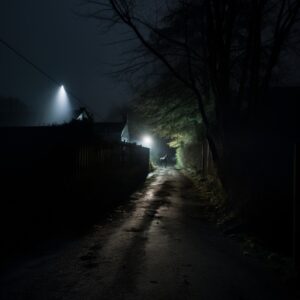Horse Spirits: Colt-Pixy or Pixy-Colt? October 1, 2023
Author: Beach Combing | in : Modern , trackbackThe latest episode of Boggart and Banshee is on horse spirits and Chris and I disagree on, well, just about everything… There is also a fun accompanying book with seventeen different tales of horse spirits (UK, US). However, you can listen to the podcast for that. I’ve, instead, been caught up with one very simple horse spirit philological problem over the past few weeks and I need some help. Enter left stage the colt-pixy.
The colt-pixy is the most famous of the British horse trickster spirits. It was noted in the folklore of Wiltshire, west Hampshire, east Dorset and Somerset. It had the usual battery of solitary supernatural tricks: terrified children, misled ponies, tricked night-walkers, guarded apple orchards, shat on blackberries… But its name doesn’t make sense.
Actually, at first glance the name does, kind of, make sense. Several horse spirits have a name employing a young horse word: e.g. the shag foal or the tatter foal of east England. The tattered or shaggy element relates to the rough first-year coat which seems to have had special supernatural connotations: lots of other fairies and fairy beings are, note, described as being ‘ragged’. Shag may also relate to East Anglian shuck from scucca in Old English, demon.
There is some resemblance then with parallel names and ‘pixy’ could be argued to be a central southern English equivalent of scucca, an ambivalent or evil supernatural being. The problem is the word order. If this really was a pixy-like colt then it should be pixy-colt. Instead, it is the colt-pixy. Think of the difference between a ‘horse fairy’ and a ‘fairy horse’.
And there is more. Our three earliest occurrences of the word from 1542-1611 (after which the word was not recorded for almost two hundred words) all spell the word without a ‘t’: collepixie, collpixe and coll pixci. This suggests that the ‘colt’ part of the colt-pixy might not have been originally ‘colt’ at all. ‘Colt’ was perhaps adopted, as so often with the supernatural, by folk etymology.
But what was this original mysterious word? There is the late and ill attested medieval ‘col’ a ‘conjuring trick, jugglery’: a term, in the OED’s marvellous put down ‘of unknown etymology, and even of uncertain existence’. We could have then the tricksy pixy. But is there any other possible explanation, not least given that col is so poorly attested?* drbeachcombing AT gmail DOT com
*The OED supports ‘colt’ even in the early forms because in our 1611 source the coll pixci was ‘tattered’ and this is connected with various ragged and tattered horse spirits. It doesn’t take into account the reverse word order though. Unless there is some dialectal justification I can’t get around that.



